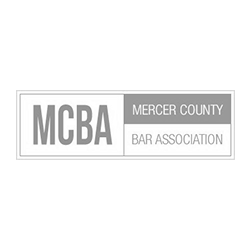Hostile Work Environment &
Harassment Due to Protected Conduct
The most common form of hostile work environment harassment is sexual harassment. But harassment on the basis of any protected status, such as age, race, national origin or sexual orientation is a form of discrimination and is prohibited by the New Jersey Law Against Discrimination (NJLAD). If you have been harassed because of some protected status, and that harassment has created a hostile work environment, then you may have a claim under the NJLAD if you can prove that the complained-of conduct actually occurred and that the conduct constitutes discriminatory harassment. Not all harassment is against the law. Only harassment because of your protected status (such as age, race or gender) is a violation of the NJLAD. To prove that the conduct constitutes discriminatory harassment, you must be able to prove two elements by a preponderance of the evidence. First, you must prove that the conduct occurred because of some protected status, such as your age, race, gender, disability, national origin or sexual orientation. Second, you must prove that the conduct was severe or pervasive enough to make a reasonable person believe that the conditions of employment were altered and that the working environment was intimidating, hostile or abusive.
Protected Status – For example, if you are claiming that you are being harassed because you are gay, you must prove that the conduct would not have occurred if you were heterosexual. To prove that the conduct occurred because of your protected status, you do not have to prove that your employer or supervisor intended to harass you or intended to create a hostile working environment. The employee’s or supervisor’s intent is not at issue. The issue is simply whether the conduct occurred because of your protected status.
Sufficiently Severe or Pervasive – To establish this element, keep in mind that the conduct does not have to be both severe and pervasive; the conduct need only be severe or pervasive. The conduct can consist of a single very severe incident or an accumulation of incidents. When the conduct consists of multiple incidents, you should not consider each incident individually, but should consider the totality of the incidents. Numerous incidents that would not be sufficient if considered individually or separately may be sufficient when considered together. You need not personally have been the target of each or any instance of offensive or harassing conduct for a court to find that the working environment was hostile. Evidence of offensive or harassing conduct directed toward other workers, if you personally witnessed that conduct, is also relevant. In deciding whether the conduct in your case is sufficiently severe or pervasive to create a hostile working environment, a court will view the conduct from the perspective of a reasonable person who is also a member of your protected status, not from your own subjective perspective. In other words, the issue that must be decided is not whether you personally believed your working environment was hostile. The issue is whether a reasonable person of your age or with your disability (or whatever protected status is at issue) would find the working environment hostile.
Finally, it is not necessary to show that you have actually been psychologically harmed by the conduct, or that you suffered any economic loss as a consequence of the conduct. Those issues may be relevant to the amount of damages you can recover, but they are not relevant to the issue of whether the conduct constitutes unlawful harassment.
Intentional Infliction of Emotional Distress
Sometimes, conduct in the workplace is not necessarily discriminatory, but it is so outrageous that it may be actionable in its own right. In those situations, you may have a claim for intentional infliction of emotional distress. To maintain an action for intentional infliction of emotional distress, you must prove that the defendant acted intentionally or recklessly. More specifically, it must be shown that either: (1) the defendant intended both to do the act and to produce the emotional distress; or (2) that the defendant acted recklessly in deliberate disregard of a high probability that emotional distress would follow. The touchstone of this tort is the extreme and uncommon nature of the actor’s conduct. To form the basis of an independent claim for intentional infliction of emotional distress, the conduct involved must be “extraordinarily despicable” to the average member of the community. Where individual acts fail to rise to the necessary level of outrageousness to support an emotional distress claim, some Courts have held that a pattern of indignities may be sufficient. For example, in one case, the plaintiff accused her employer of discrimination on the basis of her disability and intentional infliction of emotional distress. Although the Bishop court was “skeptical” of plaintiff’s ability to meet the high standard for an intentional infliction of emotional distress claim, given the litany of alleged incidents and the asserted “continuing pattern of harassment”, the Court allowed the claim to proceed. 864 F. Supp. at 428.
Severe distress must be proved, but in many cases the extreme and outrageous character of the defendant’s conduct is, by itself, important evidence that the distress. As such, it is for a court to determine whether on the evidence presented severe emotional distress can be found; it is for the jury to determine whether, on the evidence, severe emotional distress in fact exists.
-


-
Ian Hammett- Estate Planning Article SeriesTips for College Students & Parents: Be Prepared
As families begin to plan for their child’s transition into college, there are many practical logistics to consider. One such item that should be on the top of the list is to ensure they are prepared to be on their own from a legal perspective. At Mason, Griffin & Pierson, we offer a program to counsel college students and their parents in such matters. To find out more about preparing documents for your student, Click Here.
“Do I really need a Will?“ The answer for almost all adults in New Jersey, from those just starting out to those well into retirement years, is yes, you should have a Will.
At Mason, Griffin & Pierson, we can assist clients develop a comprehensive estate plan to express their wishes that incorporates, as appropriate, estate and gift tax planning strategies and prepare the documents. Documents include Last Wills and Testaments, Powers of Attorney, and Advance Directives for Health Care.
To find out more about estate planning, Click Here. To schedule a no obligation consultation, Click Here. -
New Reporting Requirements Corporate Transparency Act On January 1, 2024, reporting requirements under the Corporate Transparency Act ("Act"), went into effect. All businesses subject to the Act will have to report specific information on the company and certain individuals that own and/or control the company. Mason, Griffin & Pierson is happy to guide you through this reporting process and answer any questions that you may have. Please do not hesitate to reach out if you would like our assistance.
On January 1, 2024, reporting requirements under the Corporate Transparency Act ("Act"), went into effect. All businesses subject to the Act will have to report specific information on the company and certain individuals that own and/or control the company. Mason, Griffin & Pierson is happy to guide you through this reporting process and answer any questions that you may have. Please do not hesitate to reach out if you would like our assistance.
-
Sharon A. Dragan receives the Michael A. Pane Ethics In Government Award Congratulations to Sharon A. Dragan for receiving the Michael A. Pane Ethics In Government Award. The award was presented by the NJILGA at the New Jersey State League of Municipalities November convention. The Michael A. Pane Ethics In Government Award honors a municipal professional who exemplifies the highest standards of ethics and whose work has significantly enhanced the integrity of local government. November 2023
The Michael Pane Award, established by the Pane Family and the New Jersey State League of Municipalities, is given in honor of Michael A. Pane, Sr., who was the long-time editor of the Municipal Law Review, president and trustee of the New Jersey Institute of Municipal Attorneys, counsel to the New Jersey Association of Municipal Clerks, counsel to the League of Municipalities and author of the New Jersey Practice Series, Local Government Law volumes.
Congratulations to Sharon A. Dragan for receiving the Michael A. Pane Ethics In Government Award. The award was presented by the NJILGA at the New Jersey State League of Municipalities November convention. The Michael A. Pane Ethics In Government Award honors a municipal professional who exemplifies the highest standards of ethics and whose work has significantly enhanced the integrity of local government. November 2023
The Michael Pane Award, established by the Pane Family and the New Jersey State League of Municipalities, is given in honor of Michael A. Pane, Sr., who was the long-time editor of the Municipal Law Review, president and trustee of the New Jersey Institute of Municipal Attorneys, counsel to the New Jersey Association of Municipal Clerks, counsel to the League of Municipalities and author of the New Jersey Practice Series, Local Government Law volumes.
-
Liz Zuckerman appointed to the District VII Ethics Committee: The Supreme Court of New Jersey appointed Elizabeth Zuckerman to serve on the District Ethics Committee for District VII (DEC VII) for a three-year term. The district includes Mercer County. August 23, 2023
The Supreme Court of New Jersey appointed Elizabeth Zuckerman to serve on the District Ethics Committee for District VII (DEC VII) for a three-year term. The district includes Mercer County. August 23, 2023
-
Paul M. Bishop named Director We are pleased to announce the election of Paul M. Bishop to the Board of Directors, Mason, Griffin & Pierson, PC. Paul, one of the firm’s senior litigators, practices business, commercial, and general litigation, and represents clients in complex disputes throughout New Jersey’s state and federal courts. July 2023
We are pleased to announce the election of Paul M. Bishop to the Board of Directors, Mason, Griffin & Pierson, PC. Paul, one of the firm’s senior litigators, practices business, commercial, and general litigation, and represents clients in complex disputes throughout New Jersey’s state and federal courts. July 2023
- June 2022
- October 2021
- May 2021
- March 2021
- February 2021
- January 2021
- December 2020
- March 2020
- February 2020
- January 2020
- December 2019
- October 2019
- July 2019
- June 2019
- May 2019
- March 2019
- January 2019
- December 2018
- November 2018
- October 2018
- September 2018
- June 2018
- May 2018
- April 2018
- March 2018
- February 2018
- January 2018
- December 2017
- November 2017
- October 2017
- September 2017
- August 2017
- June 2017
- May 2017
- April 2017
- February 2017
- December 2016
- November 2016
- October 2016
- September 2016
- July 2016
- June 2016
- May 2016
- April 2016
- March 2016
- February 2016
- January 2016
- December 2015
- November 2015
- October 2015
- September 2015
- July 2015
- June 2015
- May 2015
- April 2015
- March 2015
- February 2015
- January 2015
- December 2014
- November 2014
- October 2014
- September 2014
- August 2014
- July 2014
- June 2014
- May 2014
- April 2014
- March 2014
- February 2014
- January 2014
- December 2013
- November 2013
- October 2013
- September 2013
- August 2013








